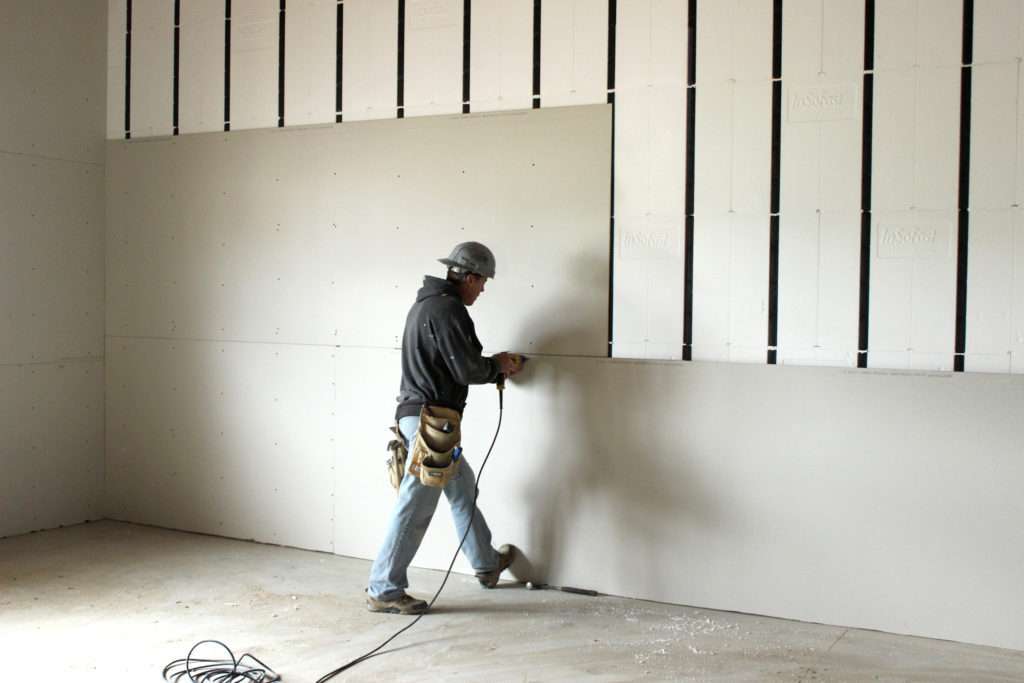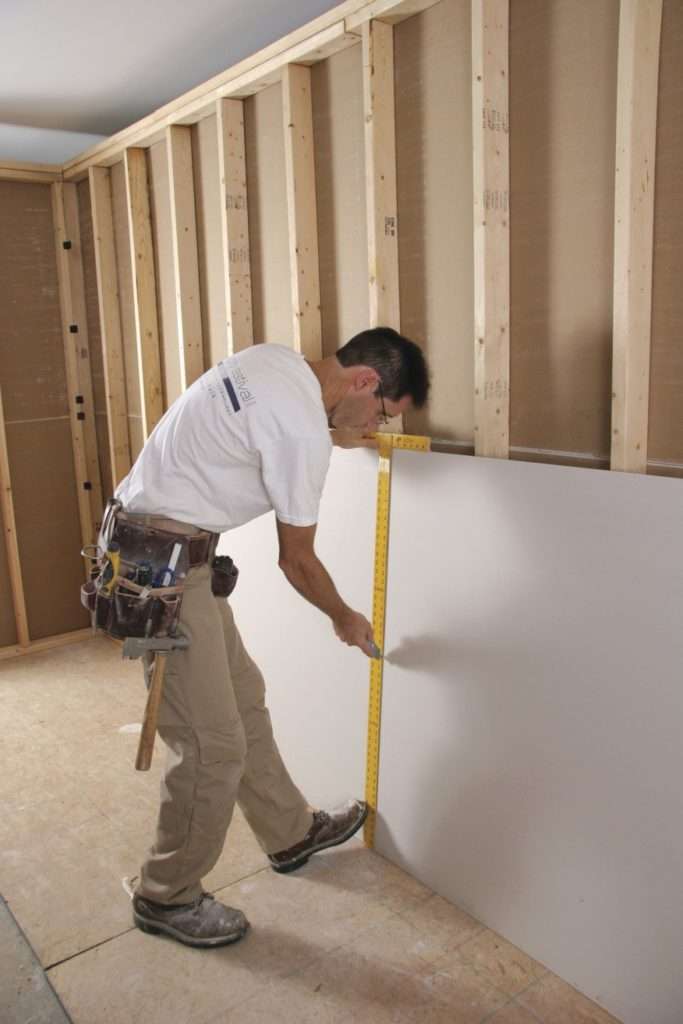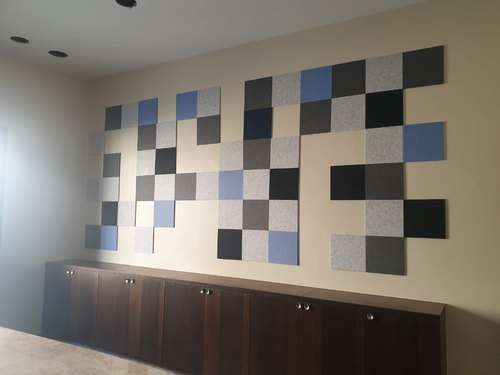When it comes to audio recording work, everything about your intended work area has to be taken into consideration.
Soundproofing your music studio is a good idea to control the natural flow of sound in the room,
plus it can help you get rid of any noises that could potentially crowd your recordings.
Essentially,
soundproofing is one way to keep unwanted sounds out of the studio room to avoid them from being captured by the microphone.
You also need to make sure that sounds do not bounce off your floors or walls or ceilings.
(Check out this article HERE dedicated to flooring.)
Soundproofing for a recording studio is important because it ensures that you get the most out of your studio equipment,
therefore enabling you to produce and release clean vocals and music.
As I was gathering research to write on this topic, I went through some of my emails (specifically the ones that had questions on soundproofing)
and i’ll try to answer a few here.
SO LETS BEGIN!
What is Soundproofing?
This is the reduction of unwanted noise in a room with respect to the source and the receptor,
achieved by reducing unwanted sound waves from the source to the listener through the use of various objects standing or intervening in the sound pathway.
Do I need to soundproof my studio?
If you’re looking to get cleaner vocals and cleaner recordings of instruments then you definitely need to soundproof your studio.
There are a lot of noises that surround recording spaces,
some as simple as door creeks, or outside noises like car horns and others not even audible to the human ear but can be picked up by a microphone.
Therefore it is the job of soundproofing material to stand in the way of this noise and make sure it does not enter the studio.
This is why I highly recommend soundproofing your recording studio no matter how quiet you think it is without soundproofing.
Does Soundproofing keep sound in?
When done the right way it is able to keep the sound inside in the room.
Think of soundproofing as good sound blocking, which means that you can keep the noise in and avoid disturbing your neighbors with your music during those late night studio sessions.
Let’s now discuss the methods you could use to soundproof your music studio.
Here are a couple of things you will need to do:
Thickening the walls
This is essentially the first step and one of the most common ways to soundproof your music studio
it involves making the walls a lot thicker and denser,
this is viewed as an effective way of keeping sounds out of the room,
and effectively keeping some sounds in whilst absorbing any sound reflections that may hit the walls.
If you decide to build a wall from scratch;
one of the best choices you can pick is drywall.

You can then use a simple sound isolation or soundproof barrier
on the inside of the drywall for an extra layer of sound insulation.
Dense walls can easily with stand sound and they are less likely to vibrate when sound waves hit them.
In this case what you’re going for is a wall with a resonant frequency.
You have to make sure that you lower the resonant frequency of the wall
for any noise coming and also for sound leaking out of the studio to other rooms.
However when you choose to soundproof an already existing wall,

You can build a simple frame and have it fixed and attached on the wall and then anchor it properly,
then add some drywall and some sound barriers between the wall frame and the wall.
You can also locate the source of the noise;
then mark out the area,
and then fill out this space with soundproofing material.
With that said,
before you can properly soundproof your studio, you need to understand the layout of the room first and figure out where the noise is coming from.
So take some time to understand and assess your studio room layout.
Then go ahead and soundproof it
Fill in the spaces
When soundproofing some rooms you will come to understand that not all rooms are created equal,
it’s not always that your room is picking up noise from other rooms or spaces;
sometimes it could be that the noise present in the studio room is as a result of your studio being empty or partly empty;
and hence sounds tend to echo themselves within the room.
Most of the time this is case in large rooms or rooms with a few objects in them,
the lack of objects tends to cause sounds to reverberate within the room,
making even the smallest of noises sound loud because of the echo effect they produce.
If you have a large room it is important that you fill your room out with objects like furniture and equipment
in order to solve the noise reverberation problem you may face.
Doing this won’t stop outside noise from entering but it can take care of the echo effect problem.
Decoupling
As an example,
have you ever noticed
items on a desk rattling or vibrating due to loud music coming from a speaker in the room?
That is exactly the issue that decoupling attempts to solve.
Decoupling is basically the separation of your equipment and wall surfaces,
from the boundaries of your room in which vibrations may normally be transmitted,
therefore eliminating any unnecessary shaking that could cause unnecessary and unwanted noises.
These vibrations are compounded when they travel through two items that are touching,
especially in the design components of the room like the materials you use to build the floors, walls and ceilings.
Acoustic Panels

Acoustic panels have sound absorbing properties,
which makes them ideal for walls and ceilings;
because they can reduce and eliminate noises and echo and manage comb filtering.
If you intend on using a variety of ways to improve your overall soundproofing,
you might want to consider using acoustic panels as an extra layer of sound absorption material.
Acoustic panels are most ideal for your walls because;
they are able to reduce noise
and they are able to clarify speech and lessen the reverberation in walls with enclosed areas which makes them in recording studios.
Another advantage of using acoustic panels in a music studio is because of their capabilities to clean sound debris that may make it near impossible to record crispy clean vocals.
Acoustic panels can also be used on ceiling which means that you can literally solve two soundproofing problems with one material.
How effective are sound absorbing panels?
Sound absorbing panels can be highly effective and they can provide the perfect sound absorption material for effectively dampening and deadening sounds in an area or space.
But it also heavily depends in how and where they are used, so it is important that you get the right one.
Reduce noise sources
The truth is every room has sound sources that surround it and sometimes they exist inside the very room.
In a music studio one of the simplest methods you can reduce room noise is by basically identifying the various sound sources in the room and trying your best to reduce them.
For example you could have a lamp that may be causing a buzzing sound; you could easily have it replaced or call in an electrician to help.
There are various sound sources, it could be an air vent, and it could be an electrical interference being caused by an unstable electric connection.
Make sure you check for these kinds of subtle noise sources and try your best to eliminate them before you even get to dealing with the floors, walls, or ceilings.
Rearrange the furniture
If you’re low on funds or cannot simply afford soundproofing your studio, you can easily switch a couple of things in your room and rearrange your furniture.
If your room simply doesn’t have enough furniture then make sure you get some in there to avoid any echo problems.
Add some bookshelves or closets on your walls to avoid sound bouncing around against your bare walls. Avoid recording near bare walls, so make sure you place you place your clothing closet, furniture and closets on these bare walls.
If you have a couch against a wall that you consider noisy then move them and place them in the middle of the room in order for them to act as a sound absorption element.
This is an effective method of soundproofing if you’re in a bedroom studio or home studio.
Another way cost effective way of soundproofing your studio is hanging some paintings or artwork on the walls of your studio.
Related Articles You May Find Interesting
Is Foam Or Rubber Good For Soundproofing?
Is Sprayfoam Good For Soundproofing?
Can You Soundproof An Existing Wall?
Does Acoustic Treatment Make A Difference?
Sources
How to Soundproof a Home Studio for Recording – Masterclass
How to Soundproof a Room for Audio Recording – Adorama
How to soundproof a music studio – MMT Acoustix
How to Soundproof a Room for Music Recording – E Home Recording Studio
Studio Soundproofing – Sound Proof Cow
6 thoughts on “How Do You Soundproof A Music Studio?”